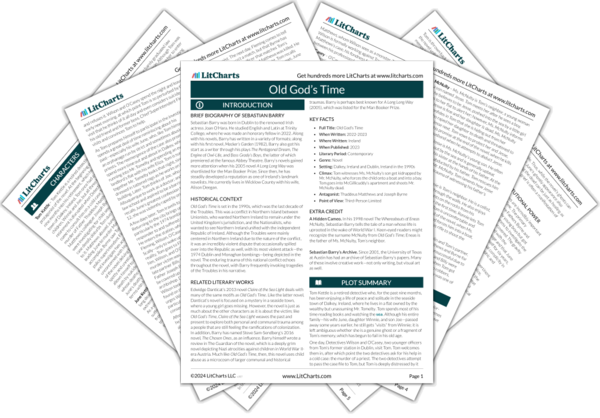Tom’s anthropomorphizing of inanimate objects highlights his loneliness—he’s resorted to seeing companionship in things—but he also senses the significance in these items as tangible symbols of memories. Many of the old things Tom owns have specific memories attached to them, and by retaining a bond with these items, Tom can preserve these memories despite his failing mind. Tom’s other major inanimate companion is the sea, which once again brings him a sense of life and hope at the end of this chapter.
